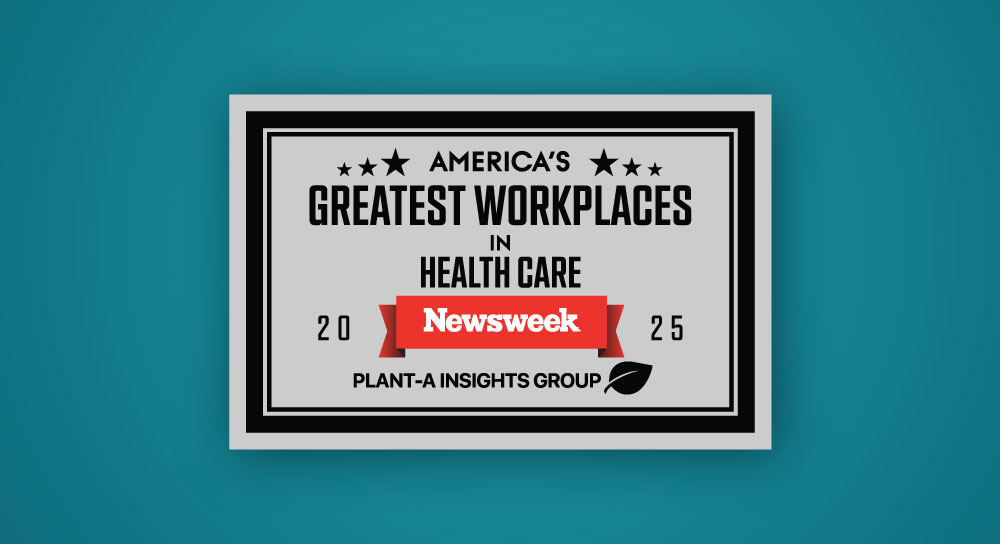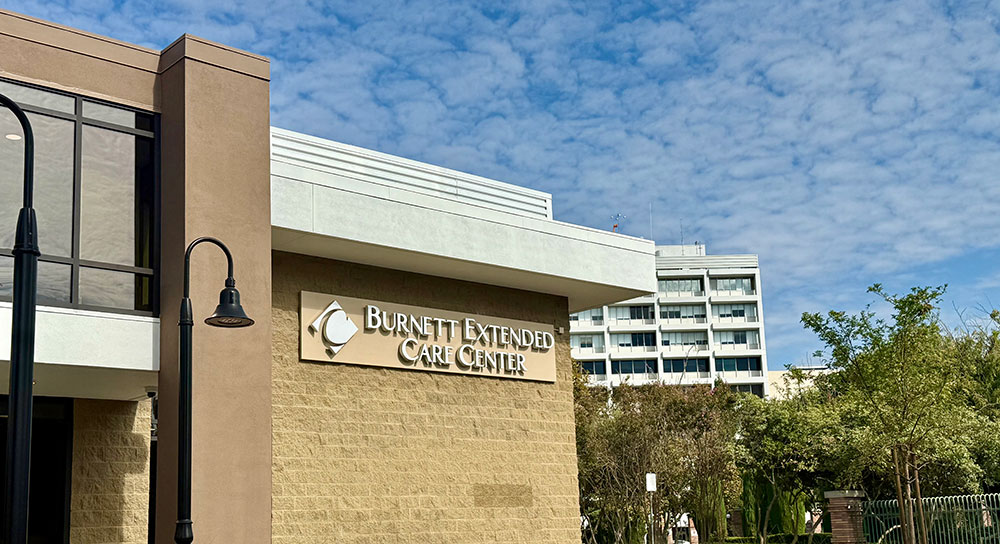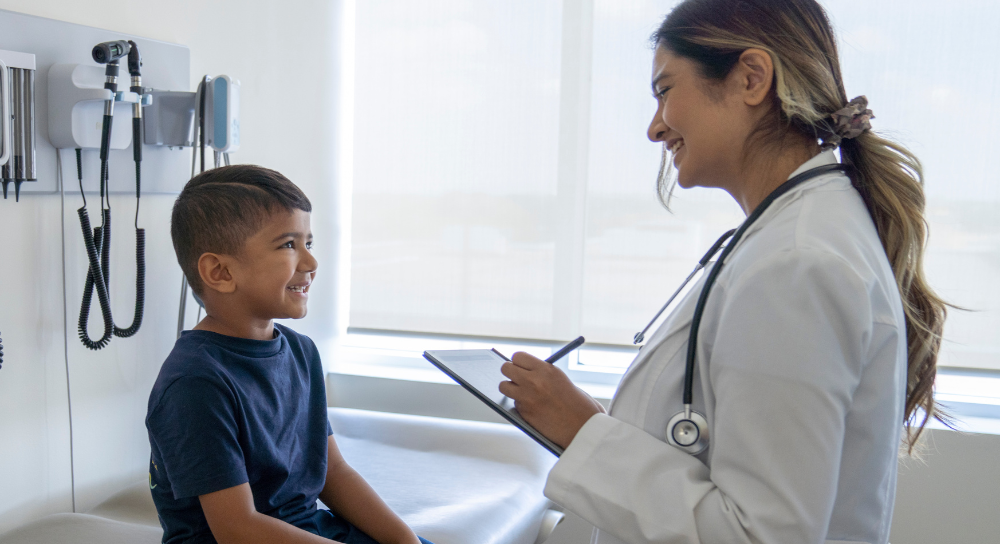According to the Centers for Disease Control and Prevention, evidence continues to grow that the COVID-19 vaccine is safe and effective, even for patients who are pregnant or trying to get pregnant.
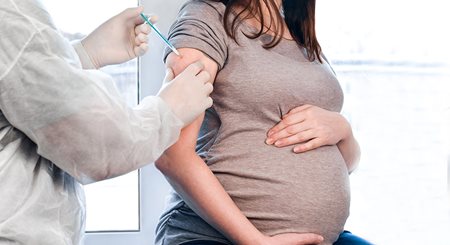 The benefits of getting the vaccine and boosters outweigh potential risks during pregnancy, says the agency, citing these facts:
The benefits of getting the vaccine and boosters outweigh potential risks during pregnancy, says the agency, citing these facts:
COVID-19 vaccines do not contain live virus.
Vaccination during pregnancy can build antibodies to help protect your baby.
There is no evidence of increased risk for miscarriages or infertility.
There are currently three main types of COVID-19 vaccines approved or authorized for use in the U.S.: mRNA, viral vector, and protein subunit. They all work by prompting our bodies to recognize when we’re infected and to help our bodies fight the disease.
Contracting COVID-19 when pregnant can lead to serious complications
While getting a COVID-19 vaccine won’t prevent expectant parents from contracting COVID-19, it can help protect them from getting severe forms of the illness, which could adversely affect their own health and that of their baby.
“If you have COVID-19 during pregnancy, you are at increased risk of complications that can affect your pregnancy and developing baby,” says the CDC. Those complications “increase the risk of delivering a preterm or stillborn infant,” they add.
To keep patients as healthy as possible, doctors like Carolina Sueldo, an OB/GYN with Community Health System, encourage patients who are pregnant or trying to get pregnant to get a COVID-19 vaccine. This minimizes the severity of the COVID-19 disease should they get it.
“What we found was that (unvaccinated) pregnant women were at significantly increased risk from COVID disease. They had higher hospitalization rates. They had higher rates of admission to the intensive care unit. We saw increased risk for miscarriage, and an increased risk for preterm labor, preterm delivery,” noted Dr. Sueldo, a double board-certified reproductive endocrinology and infertility specialist at Clovis Community Medical Center.
Get vaccinated as early as possible
The CDC and medical organizations like the American College of Obstetricians and Gynecologists say pregnant people can get the COVID-19 vaccination at any point in their pregnancy to keep them as healthy as possible.
That’s because the vaccine breaks down very rapidly within the body, and the defenses that are generated could protect the pregnant person and their baby. “So now we could protect two with one vaccination,” said Dr. Sueldo.
“Ideally, we would have them vaccinated during pregnancy because actually there are really good studies now that the defenses that baby comes out with at delivery are actually higher than if the baby were to get COVID infection and then get their own antibodies. There are no restrictions on the trimester … or the timing,” she said.
In the same way that other vaccines are recommended once the baby is born — like hepatitis B, and the flu shot — the COVID-19 vaccine could be administered to new moms, posing “no risk for breastfeeding,” said Dr. Sueldo.
Breaking through the myths surrounding COVID-19 and pregnancy
Some pregnant people are fearful of getting the COVID-19 vaccine because of the misleading information about adverse effects to their baby or becoming infertile.
“What patients need to understand and what the public needs to understand is … number one, mRNA vaccines have actually been around for a long time and they’ve been studied for a long time,” said Dr. Sueldo. An mRNA vaccine teaches cells how to make a protein that will trigger an immune response. Examples of mRNA COVID-19 vaccines include those produced by Pfizer and Moderna.
“Number two, the two large studies of Pfizer and Moderna (vaccines) actually had almost 100,000 patients between the two of them. So, while it was fast, it actually covered a huge amount of the population,” she said. “The idea was that there was a ton of funding and a ton of support to push this through faster, which is why they were able to acquire so many participants for their study in such a short amount of time.”
“Number three, we know and it’s documented both at the bench research level as well as the clinical level, the mRNA vaccines break down rapidly; they do not alter a human’s DNA. They do not pass the placenta. They do not alter the developing embryo. It’s something that is recognized by our defenses, by our immune system and then is immediately broken down,” she said.
“Number four is at this point even though we haven't had the luxury of time, we do have the luxury of volume with millions and millions of people across the world being vaccinated. That speaks to the efficacy and the safety of that COVID-19 vaccination.”
Resources for help making your own decision
Dr. Sueldo encourages pregnant people to have a conversation with their health provider and seek out information from credible resources. “It really is a discussion with the provider and trying to educate yourself through vetted agencies like the CDC, the American College of Obstetricians and Gynecologists and the American Society of Reproductive Medicine,” she said.
“If you go to any of their websites, any of their social media, you will absolutely see recommendations for vaccination.”
See this story on MedWatch Today


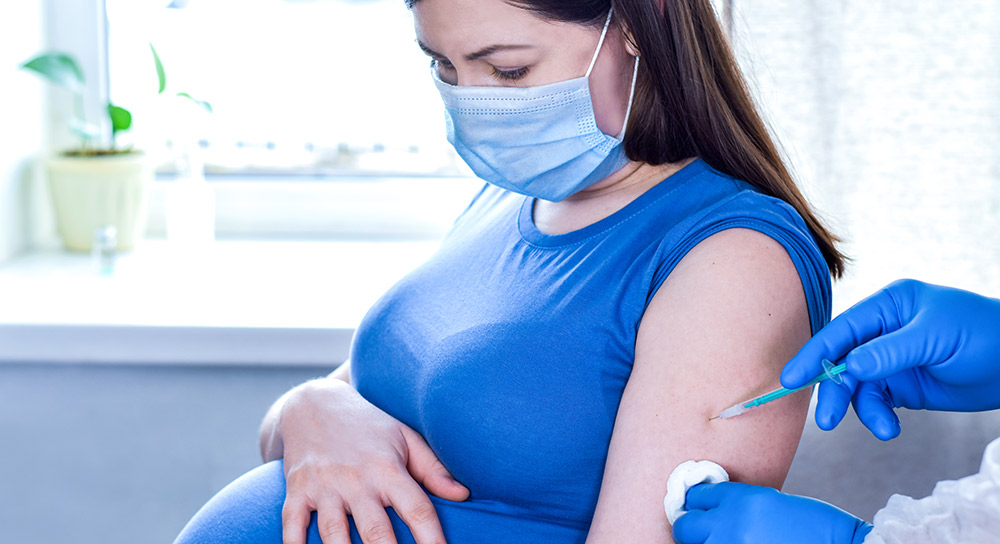.jpg?language=en-US)
